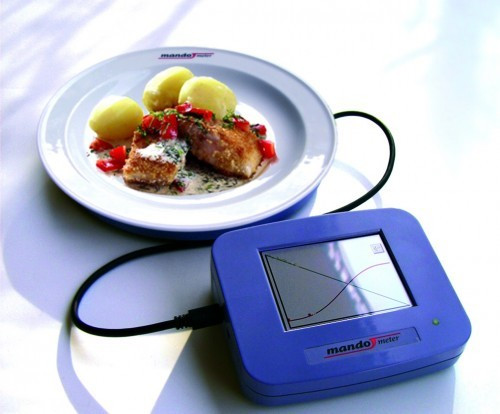New 'Talking Scale' Can Fight Obesity

A new "talking plate" that monitors portion sizes and how fast people eat could be the key to fighting obesity and help people to lose weight, a new study reveals.
The Swedish-made Mandometer monitors the speed at which people clear their plates. If food is consumed too quickly, the plate instructs the diner to "please eat more slowly."
The device comes in two parts: a scale that sits beneath the plate and a screen that shows graphics of the food on the plate. A graphic of the food can be seen disappearing on the screen as the person eats.
Obesity experts, who tested the device in an initial study, believe teaching overweight people to reduce the speed at which they eat helps them to recognise feeling full, leading to weight loss.
The device, which costs about £1500, will now be used in an NHS study run by Bristol University. It will involve 600 families, each with at least one obese parent and one obese child, aged between 5 and 11.
"Telling an obese person to diet will not work because dieting slows down the metabolism in preparation for starvation," Per Sodersen said, one of the founders of the company that made the Mandometer.
"What is more important is the speed at which you eat and to recognise when you are full, so you eat less."
Julian Hamilton-Shield, who led the study, said the Mandometer works by retraining the body to recognise fullness. "We have already shown that on average the [young people] using the Mandometer consumed 47g [1.06oz] less... at the end of a 12-month trial period, which was a 12 per cent to 15 per cent reduction for the one meal a day that we monitored... Six months after stopping the Mandometer, the children still ate a reduced portion size and were still losing weight," she said in a Sunday Times report.
One in four adults in the UK are classified as obese and one in eight children are classified as overweight or obese. The NHS spends about £4.2billion every year treating related illnesses.
© Copyright IBTimes 2025. All rights reserved.





















